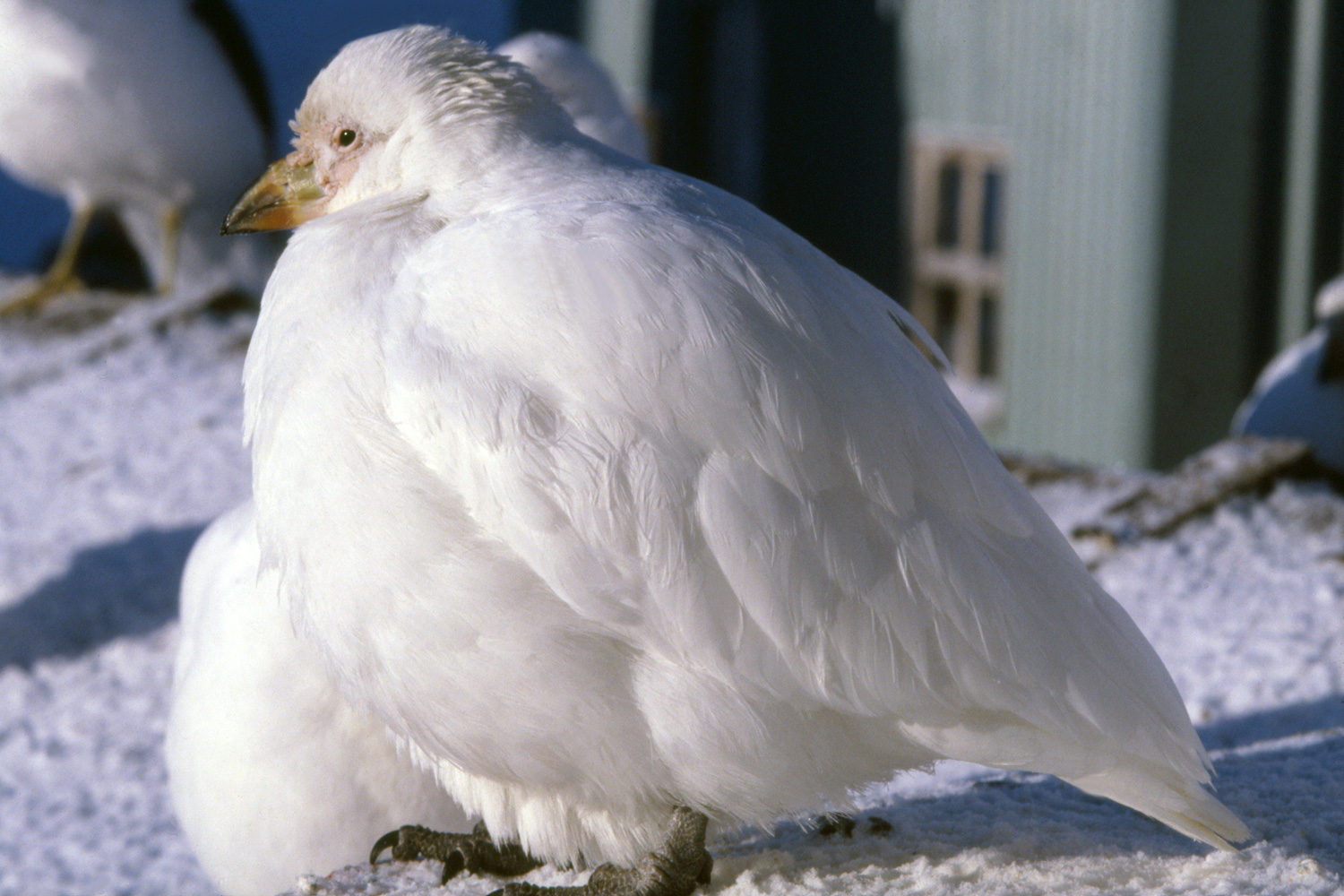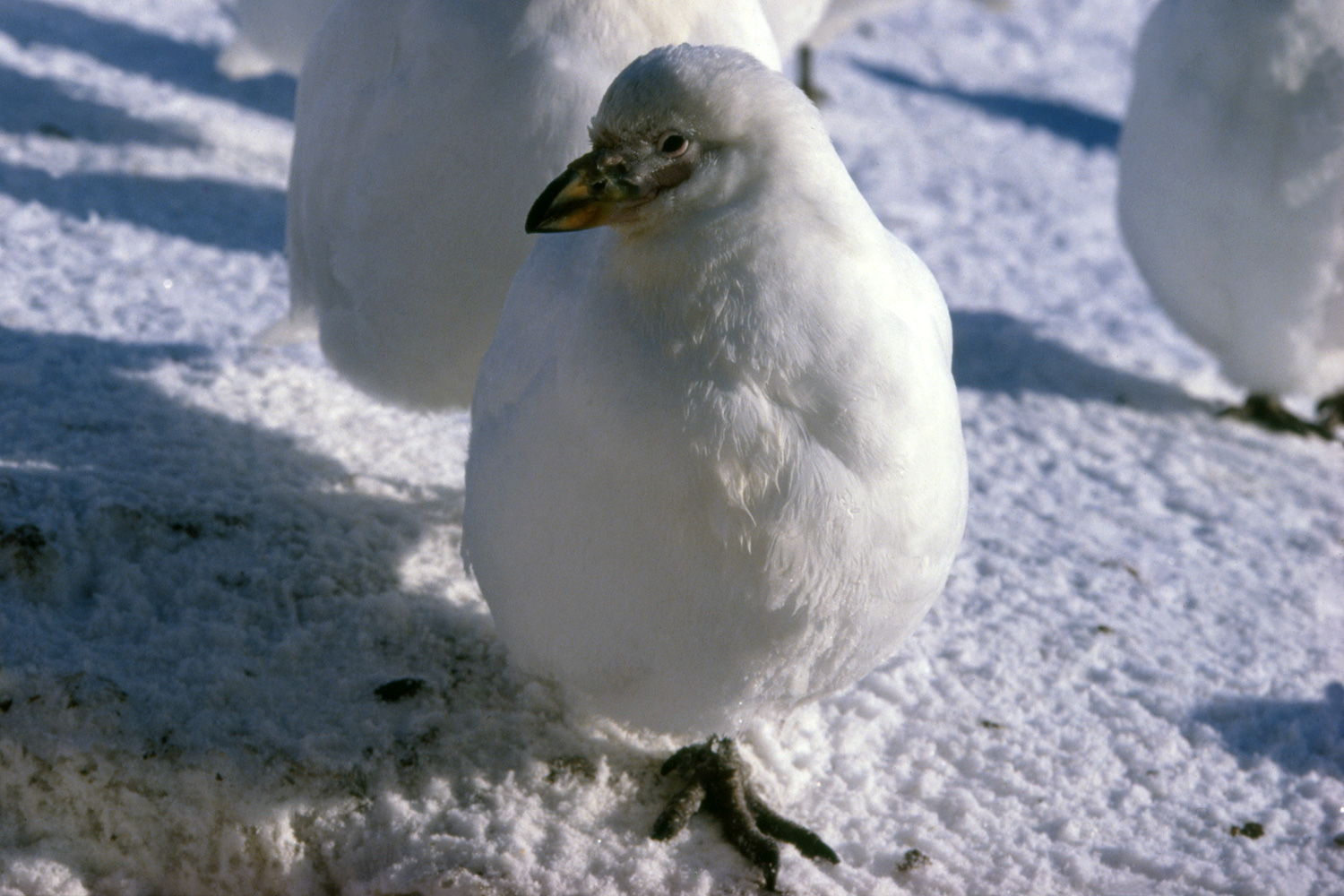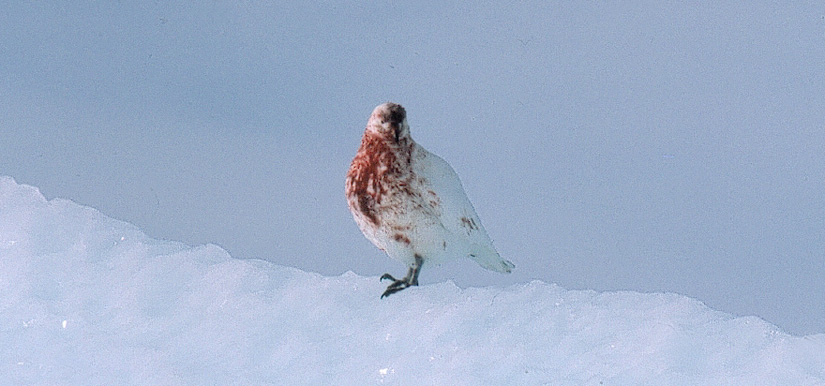American or Snowy Sheathbill - Facing Extreme Cold - Resting
After Feeding on a Seal Carcass
- Chionis albus
Back to gallery | Previous | Next
These are sheathbills (also sometimes referred
to as "Mutts" - it just seems appropriate) and they're the
"dust men" (garbage disposers) of the Antarctic. They
will eat just about anything that they can lay their beaks
on, the one in the lower picture had been feeding on (in)
a dead seal. They frequently scavenge penguin colonies for
eggs, dead chicks, even penguin faeces - there's occasionally
some not fully digested food there. The only Antarctic bird
species that don't have webbed feet and so are not able
to fish for food like the others.
They usually stay out of the path of the sea-ice and move north in the winter when the worst weather comes. The top picture however was taken in mid-winter at a temperature of minus 30 centigrade of one of a small colony of sheathbills that lived around the base on Signy island. Whereas most of the other sheathbills would move north, this hardy group evidently thought that there were enough scraps available from the base to make staying worthwhile. Surprisingly hardy creatures, the bird in the top picture has its feathers fluffed out as far as it can and is considerably skinnier than this picture shows.
In an attempt to try to reduce heat loss mutts will hop around on one leg rather than risk getting two cold. This made landing rather exciting as they found out the hard way that this is really a two legged activity. Frequent falls down small holes were another hazard as their one leg went between slats on wooden decking. In fact so determined were they to not use both legs and so clumsy in the process, that for a while I was convinced that there were actually several unfortunate individuals that really only had a single leg.
Photo; © Paul Ward - Pictures taken on Signy Island, South Orkneys, Antarctica.



